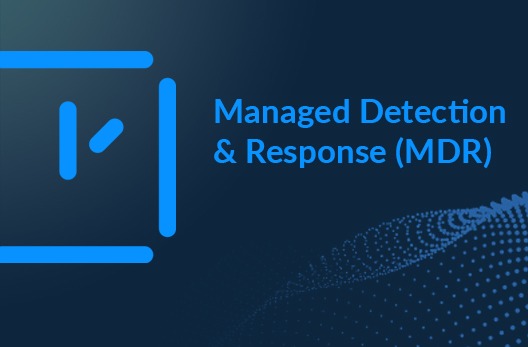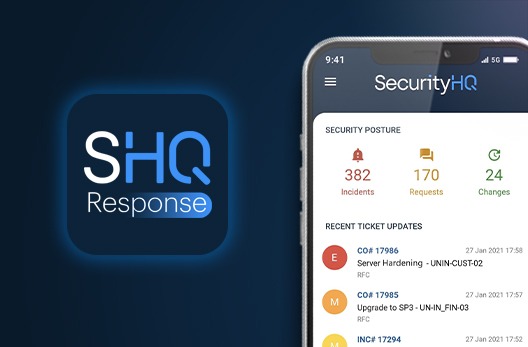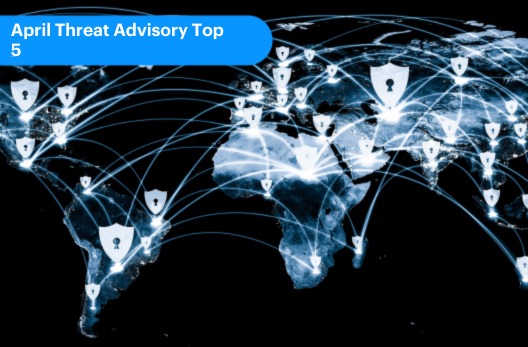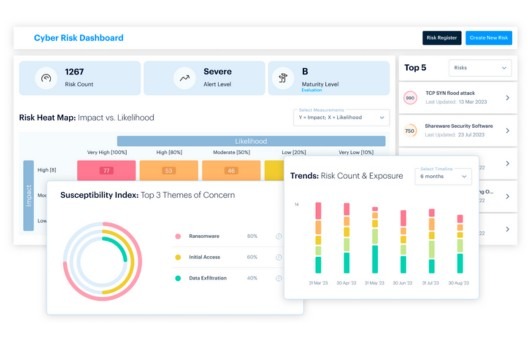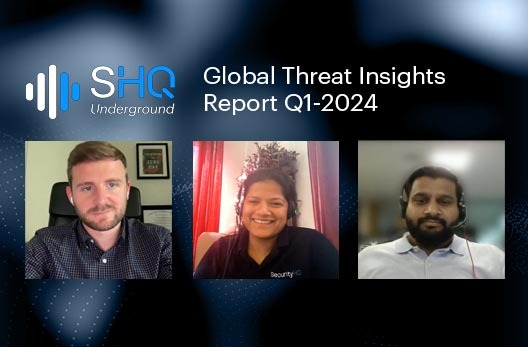Business Culture • 8 Min READ
How the Mindset Behind an Ironman Champion Can Influence Business. An Interview with Clare McCulloch.
by Eleanor Barlow • Dec 2020
As a company, SecurityHQ do not often divulge internal discussions. But now and again, our team has an internal call with a person who has done something worth talking about!
This week, within one of our motivational team talks, we were delighted to host Clare McCulloch. Clare is a serious and successful runner, triathlete, UK🥇in her age group for Ironman 70.3. She qualified for the world championships last year, this year, and will be competing for the World Championships in Utah, United States, 2021.
She is also a mum of two, an extremely positive and incredibly focused person and an inspiration to those who know her. In fact, her positive energy is infectious. We wanted to harness that energy and ask her a few questions, and to discuss and learn how her training and mindset could influence and have a positive impact on our own attitudes and mindsets outside of the sporting industry.
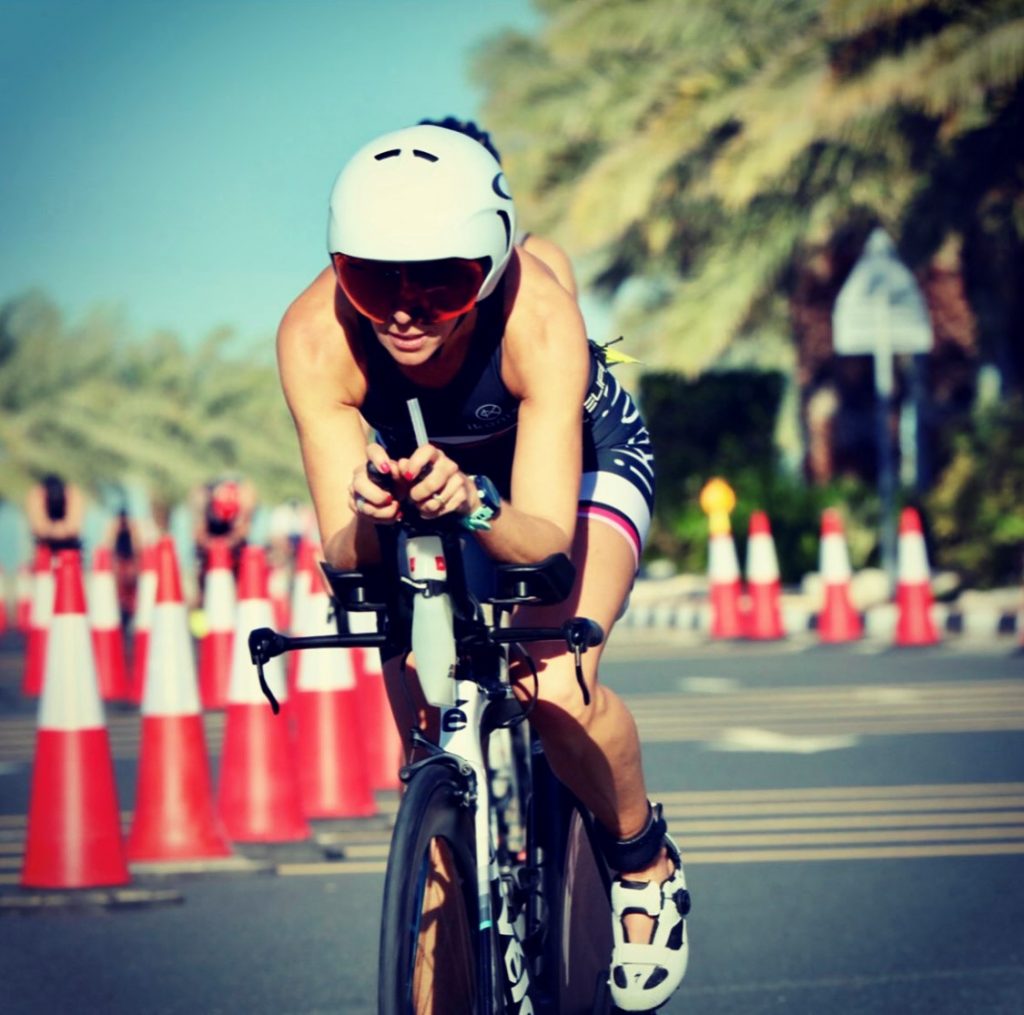
First, the basics! Clare, what does a triathlon comprise of?
Clare: “A triathlon involves three key disciplines – swimming, biking and running. So, for instance, a sprint distance will be a fast race with a 750m swim, a 20km bike and a 5km run. Olympic distance is double that. And the Ironman is a 3.5km swim, 180km bike ride, and a 42km run. I really like the different challenges presented with each type of race. My favoured distance is what we call a 70.3. This is where we swim at 1.9km, so this is typically a sea swim. Straight into a 90km bike ride, then into the 21km run.
For a 70.3 distance, everyone is aiming for a minus 5-hour time, and for a long distance you are aiming for a minus 10-hour. My best 70.3, is 4 hours 39 minutes. This got me my age group wins a couple of times.”
What you do takes not only a great deal of physical strength, but mental strength also. There are a lot of great athletes out there, why are you different to those athletes who did not qualify?
Clare: “I am very lucky in that I have always loved sport. I am a runner, and this is my strongest discipline. If I ever feel overwhelmed or stressed, I put my trainers on and just run. I have done that since I was a teenager. I have always enjoyed getting into that headspace. It was a real hobby that has evolved. I would run marathons for the love of it. And it was only about 8 years ago, when I moved to the Czech Republic that I decided to race properly.
I wanted to see what would happen if I changed my mindset about running, and really pushed myself from start to finish. I did the mental and physical shift from pure enjoyment to serious racing, and then I started to see results. To do this, you really have to acknowledge and engage with the fact that it is going to hurt a lot. But that is when you have to put mind over matter and push through.”
What do you think during a race? How does your mindset change the week before?
Clare: “I try and keep calm. I am a fitness instructor, so I am always teaching classes, right up to race day. So, I let life carry on. But there can be a great deal of noise leading up to a race and you can get swept up in it.
Leading up to an Ironman you must be there three days in advance, you have to register, and people will trawl through the athletes list. I know allot of other competitors are trying to work each other out. I do not spend a lot of time looking at that, because knowing who else is going to be racing is not going to change the way I race. So, instead, I channel down a bit. Also, the week before it’s a lot about the nutrition and eating the right stuff, so my mind focuses on what I need to do physically to prepare my body.”
What about the low times in between races, how do you push through then?
Clare: “Training has been my absolute lifeline. For me it is where I gain my positivity. So, when I am struggling, I exercise to get energised, to provide calmness and clarity. It can refocus me. It brings the good energy back that I can then pass on to my family, friends and colleagues. I train every day. It would be very easy not to some days, but if I just get on and do it, I always feel better after. What drives me is how I know I am going to feel afterwards.
You are not going to feel great every day. But just hanging in and knowing that you will come out the other side is enough.”
Do you think sometimes you also need to fool your mind to push yourself further?
Clare: “Yes, but at the same time, you have to break it down, prepare, and do it in stages. What makes you mentally strong is also being smart about what you are trying to achieve. So, regardless of what it is, you need an action plan to work up to your goal. You can’t just go from 0 to 100, it takes time and dedication.”
For us, in cyber security, clients expect a very high standard, and we expect a very high standard from ourselves because the steaks are so high. Not only that, but we are dedicated and constantly evolving, updating and improving our skillsets and techniques to help our clients as best we can. Do you feel that there are similarities here?
Clare: “Certainly! I have very high expectations of myself. I am probably my own worst enemy. There are always expectations and pressures. The expectations that we put on ourselves are very high, and this is great because we are always striving to be better. But I think that sometimes it is recognising that the pressure is coming from you, and if it is becoming too destructive then it is about trying to rebalance it.”
What do you do when things don’t go to plan?
Clare: “First, you need to physically remove yourself from that negative spiral and known that you are the only person that can shift it. That is easier said than done. But we all known ourselves better than anyone else, and we have to help ourselves out and keep pushing forwards.
If you slip, like with anything, there is always a lesson learnt. I remember when I was having a really good lead on a race last year on an Olympic triathlon. I was going to be the overall winner and then bam, I get a flat tire. It was really disappointing. But I thought, at least I didn’t come off the bike, I didn’t crash or injure myself. I ended up walking about 8km back to the transition, I racked my bike and took my race number off and went and did the run anyway and ended up really enjoying the race.
So when things don’t go to plan, its allowing yourself to sit in that for a bit, allow yourself to process it, then go right, I’ve learnt from that and I am now going to crack on.”
What does your time management look like? How do you prioritise what is important?
Clare: “Everyone, regardless of career or industry, is juggling work, family, health and more. We can all very easily be doing ten things at once, and not be focusing properly on one thing, so I am really conscious of stepping away from the noise, be in the moment, have that minute, so you can properly switch of, and be disciplined with the process of switching off so that you can really engage with what is most important.”
So much of what you are saying is transferable to what we do at SecurityHQ as a business, because we function as a team. Equally, you have not got where you are without the right mentoring, coaching and advice to help you along the way. And that’s an area that I think is also relevant to how a well-knit security team works and supports one another. Who are the people you have looked up to who have aided in your success? Would you call yourself a mentor also?
Clare: “I love training other people and I love seeing the impact that it has on others. And I really enjoy when other people turn to me as a mentor either for exercise reasons or for personal reasons. It’s about being a bit of a life coach, and I really enjoy the relationship that I have with my clients.
But it was only two years ago, when I worked in a gym in Dubai, when a friend that I worked with said that he thought I should give it a go. I disagreed, but he took me on for three months to do a few races to see what would happen. We did a trial run and then I did a sprint, an Olympic and an Ironman, and ended up winning them. From there we continued, and he knew that I was not going to religiously stick to everything to the point that I would lose my love for it. I think it is about having a mentor or a coach who understands you as a person, because we all respond to different things. What might be the right method for one athlete is certainly not the way for another.
This really transcends into our company, not just with regards to internal management, but also with regards to our clients, in recognising their differences and tailoring what is needed accordingly.
Besides winning, what is the end goal for you when you compete?
Clare: “I love the sense of achievement I have afterwards. If I am in the middle of a race, I will think about how I will feel at the end, and this drives me on. It’s about hanging on to that and knowing that the process to get there is going to be mentally and physically painful, so I just keep visualising that finish line.”
Regardless of the business you are in, there are vast benefits from outsourcing ideas and mindsets from beyond your own industry, to enhance your own concepts and processes. We take pride in trying to understand the mindsets and values of our clients, so whether you are in teaching, law, telecommunications, finance or media, we can support you in the best way. To see how SecurityHQ assists differing industries from around the world, and tailor services specific to each industry, please visit our industry page.



